Merano on:
[Wikipedia]
[Google]
[Amazon]
Merano (, , ) or Meran () is a city and ''
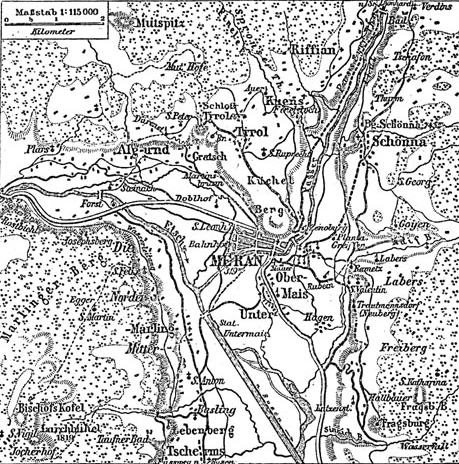
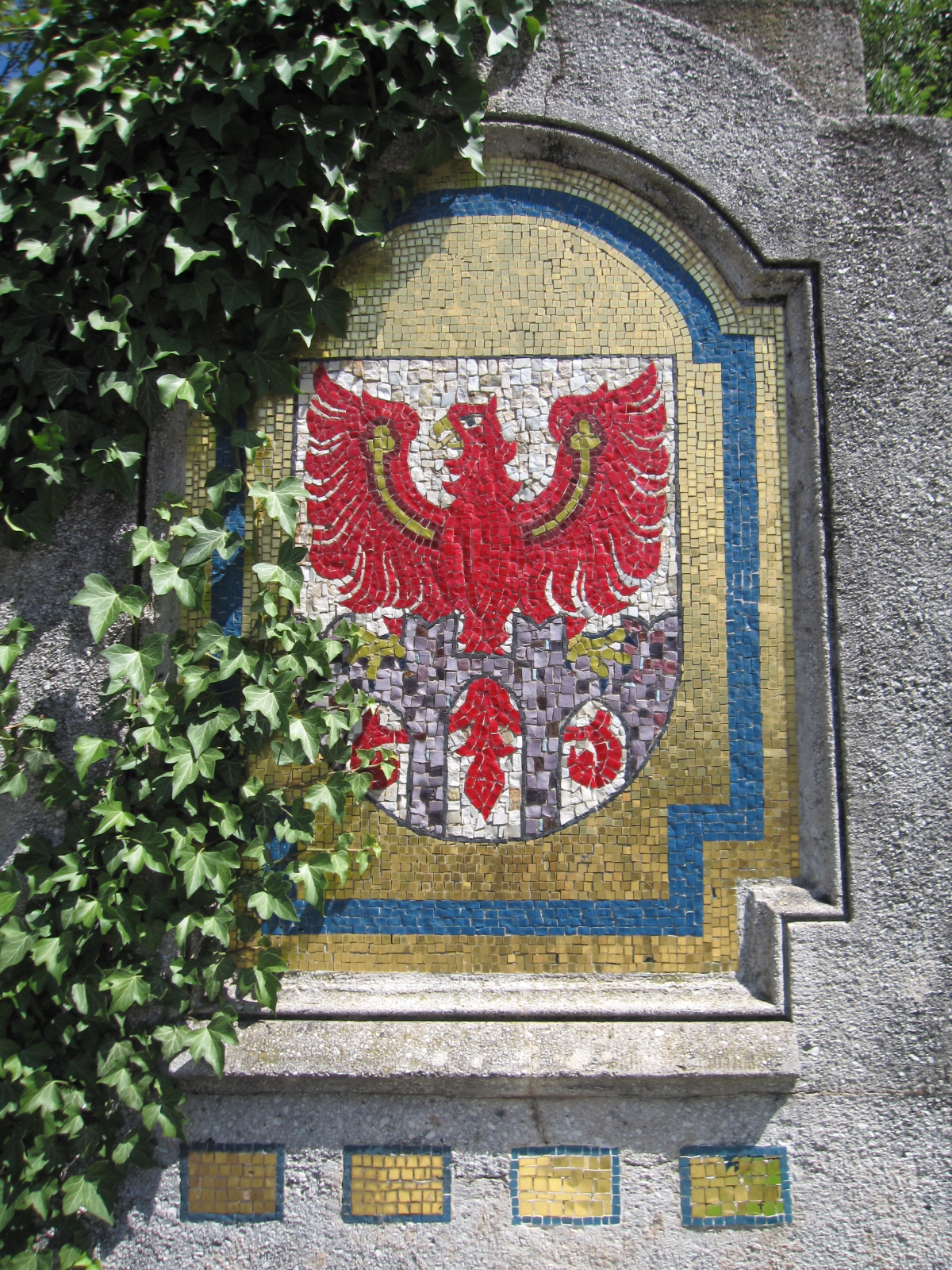 The area has been inhabited since the third millennium BC, as shown by the presence of
The area has been inhabited since the third millennium BC, as shown by the presence of
 Among the city's landmarks are the medieval city gates such as the ''Vinschgauer Tor'', ''Passeirer Tor'', and the ''Bozener Tor''. Also belonging to the fortifications is the medieval Ortenstein tower, popularly called ''Pulverturm'' (lit. "powder tower").
The main churches are the Gothic St. Nicholas' Church and the St. Barbara's Chapel, both dating to the 15th century. Also dating to this period is the Princely Castle (''Landesfürstliche Burg''), which was a residence of Archduke
Among the city's landmarks are the medieval city gates such as the ''Vinschgauer Tor'', ''Passeirer Tor'', and the ''Bozener Tor''. Also belonging to the fortifications is the medieval Ortenstein tower, popularly called ''Pulverturm'' (lit. "powder tower").
The main churches are the Gothic St. Nicholas' Church and the St. Barbara's Chapel, both dating to the 15th century. Also dating to this period is the Princely Castle (''Landesfürstliche Burg''), which was a residence of Archduke 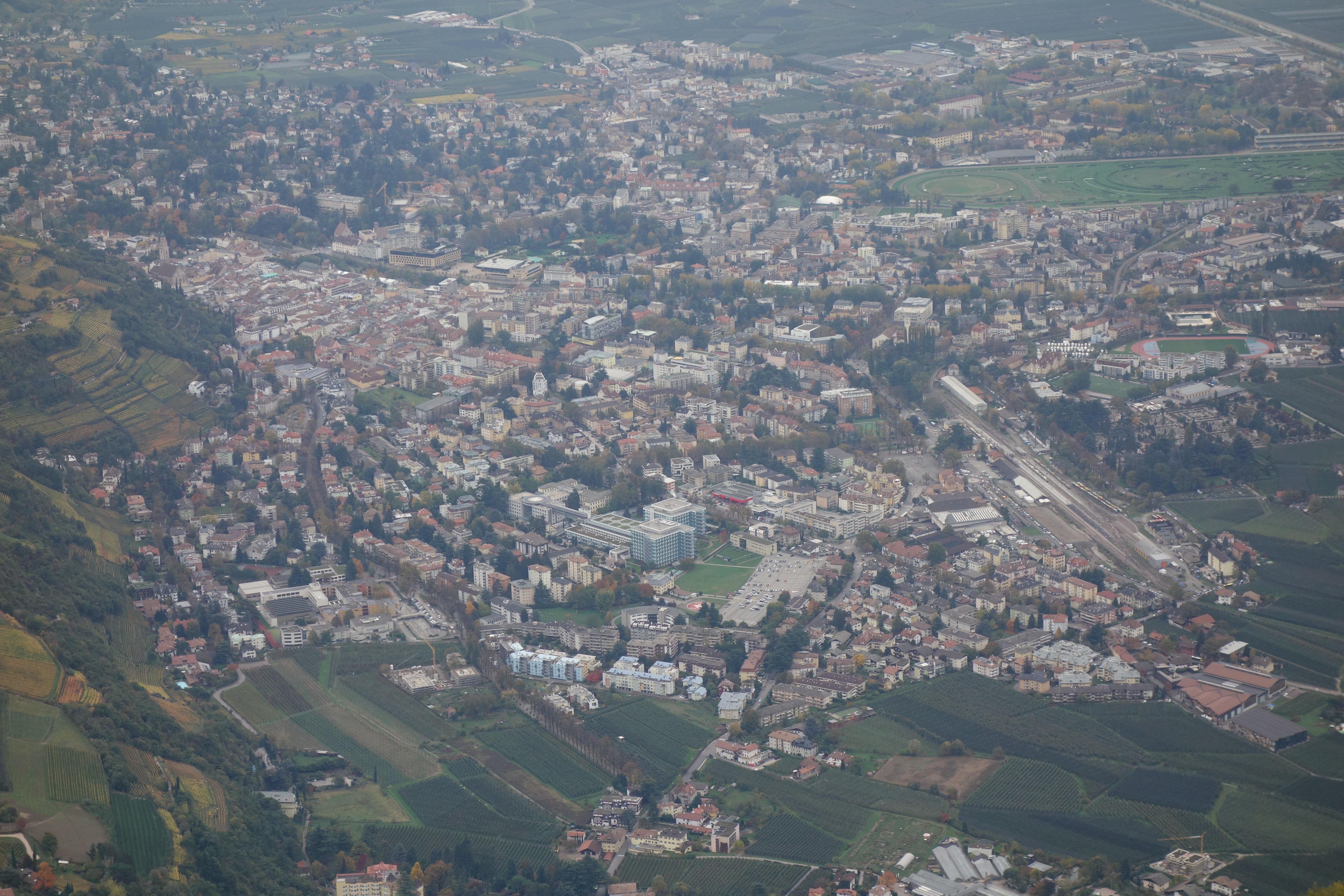

 Merano organizes the following events every year.
* Asfaltart
* Festival MeranOJazz
* Meraner Musikwochen
* Christmas market Merano
* Merano WineFestival
Merano organizes the following events every year.
* Asfaltart
* Festival MeranOJazz
* Meraner Musikwochen
* Christmas market Merano
* Merano WineFestival

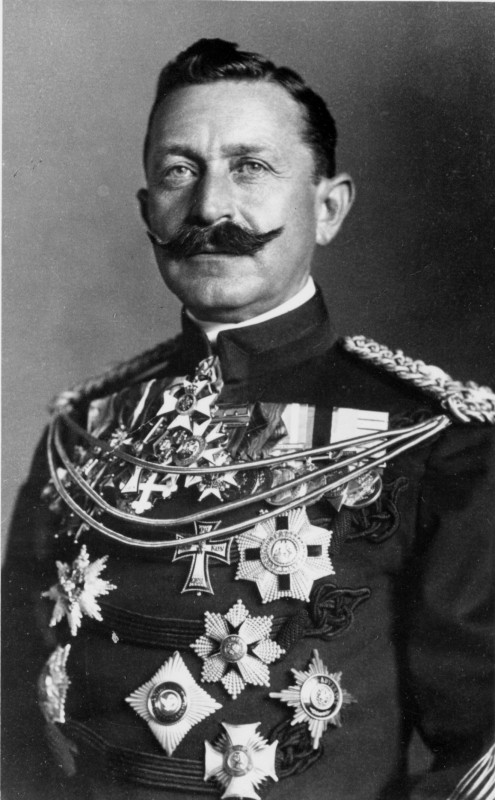
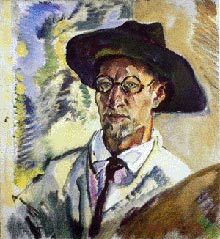

 Merano is a popular tourist destination especially for
Merano is a popular tourist destination especially for
"An Opening Created in 1924 Still Leads to Complex Battles"
''New York Times '', 29 January 2006 In 1981, the World Chess Championship match between
Meran.eu
Homepage of the Tourism Authority {{Authority control Spa towns in Italy Roman fortifications in Raetia
comune
The (; plural: ) is a local administrative division of Italy, roughly equivalent to a township or municipality. It is the third-level administrative division of Italy, after regions ('' regioni'') and provinces (''province''). The can also ...
'' in South Tyrol
it, Provincia Autonoma di Bolzano – Alto Adige lld, Provinzia Autonoma de Balsan/Bulsan – Südtirol
, settlement_type = Autonomous area, Autonomous Provinces of Italy, province
, image_skyline = ...
, northern Italy. Generally best known for its spa resorts, it is located within a basin, surrounded by mountains standing up to above sea level, at the entrance to the Passeier Valley
The Passeier Valley (german: Passeier or ; it, Passiria or Val Passiria ) is the valley of the Passer river, in the mountains of South Tyrol, northern Italy. The Passer river is a left-bank tributary to the Adige. At the mouth of the valley, whe ...
and the Vinschgau
The Vinschgau, Vintschgau () or Vinschgau Valley ( it, Val Venosta ; rm, Vnuost ; lld, Val Venuesta; medieval toponym: ''Finsgowe'') is the upper part of the Adige or Etsch river valley, in the western part of the province of South Tyrol, Italy. ...
.
In the past, the city has been a popular place of residence for several scientists, literary people, and artists, including Franz Kafka
Franz Kafka (3 July 1883 – 3 June 1924) was a German-speaking Bohemian novelist and short-story writer, widely regarded as one of the major figures of 20th-century literature. His work fuses elements of realism and the fantastic. It ...
, Ezra Pound, Paul Lazarsfeld
Paul Felix Lazarsfeld (February 13, 1901August 30, 1976) was an Austrian-American sociologist. The founder of Columbia University's Bureau of Applied Social Research, he exerted influence over the techniques and the organization of social rese ...
, and also Empress Elisabeth of Austria
Duchess Elisabeth Amalie Eugenie in Bavaria (24 December 1837 – 10 September 1898) was Empress of Austria and Queen of Hungary from her marriage to Emperor Franz Joseph I on 24 April 1854 until her assassination in 1898.
Elisabeth was ...
, who appreciated its mild climate
Climate is the long-term weather pattern in an area, typically averaged over 30 years. More rigorously, it is the mean and variability of meteorological variables over a time spanning from months to millions of years. Some of the meteorologi ...
.
Name
Both the Italian () and the German () names for the city are used in English. The Ladin form of the name is . The official name of the municipality (''comune
The (; plural: ) is a local administrative division of Italy, roughly equivalent to a township or municipality. It is the third-level administrative division of Italy, after regions ('' regioni'') and provinces (''province''). The can also ...
'') is ''Comune di Merano'' in Italian and ''Stadtgemeinde Meran'' in German (both are in official use).
History
In 17th-centuryLatin
Latin (, or , ) is a classical language belonging to the Italic branch of the Indo-European languages. Latin was originally a dialect spoken in the lower Tiber area (then known as Latium) around present-day Rome, but through the power of the ...
, the city was called ''Meranum''. Other archaic names are ''Mairania'' (from 857 AD) and ''an der Meran'' (from the 15th century).
Origin

 The area has been inhabited since the third millennium BC, as shown by the presence of
The area has been inhabited since the third millennium BC, as shown by the presence of menhir
A menhir (from Brittonic languages: ''maen'' or ''men'', "stone" and ''hir'' or ''hîr'', "long"), standing stone, orthostat, or lith is a large human-made upright stone, typically dating from the European middle Bronze Age. They can be found ...
s and other findings. The story of the city proper began in 15 BC when the Romans
Roman or Romans most often refers to:
*Rome, the capital city of Italy
* Ancient Rome, Roman civilization from 8th century BC to 5th century AD
*Roman people, the people of ancient Rome
*''Epistle to the Romans'', shortened to ''Romans'', a lette ...
occupied the Adige
The Adige (; german: Etsch ; vec, Àdexe ; rm, Adisch ; lld, Adesc; la, Athesis; grc, Ἄθεσις, Áthesis, or , ''Átagis'') is the second-longest river in Italy, after the Po. It rises near the Reschen Pass in the Vinschgau in the pro ...
valley founding a road station, ''Statio Maiensis''.
The settlement was first mentioned in an 857 deed as ''Mairania''. The Counts at Castle Tyrol elevated Merano to the status of a city
A city is a human settlement of notable size.Goodall, B. (1987) ''The Penguin Dictionary of Human Geography''. London: Penguin.Kuper, A. and Kuper, J., eds (1996) ''The Social Science Encyclopedia''. 2nd edition. London: Routledge. It can be def ...
during the 13th century and made it the capital of their County of Tyrol
The (Princely) County of Tyrol was an estate of the Holy Roman Empire established about 1140. After 1253, it was ruled by the House of Gorizia and from 1363 by the House of Habsburg. In 1804, the County of Tyrol, unified with the secularised ...
. After the county had been handed over to the Habsburg dynasty
The House of Habsburg (), alternatively spelled Hapsburg in Englishgerman: Haus Habsburg, ; es, Casa de Habsburgo; hu, Habsburg család, it, Casa di Asburgo, nl, Huis van Habsburg, pl, dom Habsburgów, pt, Casa de Habsburgo, la, Domus Hab ...
in 1363 upon the abdication of Margaret, Countess of Tyrol
Margaret, nicknamed ''Margarete Maultasch'' (1318 – 3 October 1369), was the last Countess of Tyrol from the House of Gorizia (''Meinhardiner''), and an unsuccessful claimant to the Duchy of Carinthia. Upon her death, Tyrol became united with the ...
, in 1420 Duke Friedrich IV of Austria
Austria, , bar, Östareich officially the Republic of Austria, is a country in the southern part of Central Europe, lying in the Eastern Alps. It is a federation of nine states, one of which is the capital, Vienna, the most populous ...
moved the Tyrolean court to Innsbruck. Though Merano remained the official capital until 1848, it subsequently lost its predominant position and almost all its importance as an economic hub across the roads connecting Italy and Germany. The important mint was also moved to Hall in 1477.
Modern history
The Tyrolean Rebellion of 1809 against the French occupation drew attention again to Merano. In that year, on the Küchelberg above the city, a peasants' army eked out a victory against the united French and Bavarian forces before their revolt was finally crushed. AfterWorld War I
World War I (28 July 1914 11 November 1918), often abbreviated as WWI, was one of the deadliest global conflicts in history. Belligerents included much of Europe, the Russian Empire, the United States, and the Ottoman Empire, with fightin ...
, under the Treaty of Saint-Germain-en-Laye Merano became part of the Kingdom of Italy
The Kingdom of Italy ( it, Regno d'Italia) was a state that existed from 1861, when Victor Emmanuel II of Sardinia was proclaimed King of Italy, until 1946, when civil discontent led to an institutional referendum to abandon the monarchy and f ...
with the rest of the southern part of the former Cisleithanian crown land of Tyrol.
During the Nazi
Nazism ( ; german: Nazismus), the common name in English for National Socialism (german: Nationalsozialismus, ), is the far-right totalitarian political ideology and practices associated with Adolf Hitler and the Nazi Party (NSDAP) in ...
occupation of the region in 1943–5, the Meranese Jewish population was almost completely deported and murdered within concentration camps.
Coat of arms
The city'scoat of arms
A coat of arms is a heraldic visual design on an escutcheon (i.e., shield), surcoat, or tabard (the latter two being outer garments). The coat of arms on an escutcheon forms the central element of the full heraldic achievement, which in its ...
depicts the red Tyrolean eagle sitting on a wall with four pieces of Ghibelline battlements and three arches that symbolize the city. The arms is known from the 14th century and the oldest seal dates from 1353, while the coloured one since 1390. In a 1759 image, the eagle is represented with a crown and a green wreath of honour. After World War I and the annexation of the city from Austria-Hungary to Italy, it was a new coat of arms given in 1928, which looked similar to the old one, but with five parts of the battlements and the arches with the gates opened on a lawn of shamrock. A mural crown was placed above the shield. The five parts of the battlement represented the districts of Maia Bassa, Merano (old city), Maia Alta, and Quarazze and Avelengo, which were incorporated into the city by the Italian fascists. After World War II, Avelengo became independent again and the historical coat of arms was restored.
Main sights
 Among the city's landmarks are the medieval city gates such as the ''Vinschgauer Tor'', ''Passeirer Tor'', and the ''Bozener Tor''. Also belonging to the fortifications is the medieval Ortenstein tower, popularly called ''Pulverturm'' (lit. "powder tower").
The main churches are the Gothic St. Nicholas' Church and the St. Barbara's Chapel, both dating to the 15th century. Also dating to this period is the Princely Castle (''Landesfürstliche Burg''), which was a residence of Archduke
Among the city's landmarks are the medieval city gates such as the ''Vinschgauer Tor'', ''Passeirer Tor'', and the ''Bozener Tor''. Also belonging to the fortifications is the medieval Ortenstein tower, popularly called ''Pulverturm'' (lit. "powder tower").
The main churches are the Gothic St. Nicholas' Church and the St. Barbara's Chapel, both dating to the 15th century. Also dating to this period is the Princely Castle (''Landesfürstliche Burg''), which was a residence of Archduke Sigismund Sigismund (variants: Sigmund, Siegmund) is a German proper name, meaning "protection through victory", from Old High German ''sigu'' "victory" + ''munt'' "hand, protection". Tacitus latinises it '' Segimundus''. There appears to be an older form of ...
of Austria
Austria, , bar, Östareich officially the Republic of Austria, is a country in the southern part of Central Europe, lying in the Eastern Alps. It is a federation of nine states, one of which is the capital, Vienna, the most populous ...
.
The '' Steinerner Steg'' stone bridge crosses the Passer river
The Passer (; it, Passirio ) is a torrent in northern Italy, a left tributary of the Adige, whose entire course lies within South Tyrol. The stream rises near the Alpine pass between Italy and Austria known as the Timmelsjoch, and flows through ...
and dates to the 17th century.
The city saw further development as it became increasingly popular as a spa resort, especially after Empress Elisabeth of Austria
Duchess Elisabeth Amalie Eugenie in Bavaria (24 December 1837 – 10 September 1898) was Empress of Austria and Queen of Hungary from her marriage to Emperor Franz Joseph I on 24 April 1854 until her assassination in 1898.
Elisabeth was ...
started visiting. Dating from the 19th century are the Civic Theatre, the '' Kurhaus'' and the Empress Elisabeth Park
The Empress Elisabeth Park (german: Kaiserin-Elisabeth-Park) is a public park in the town of Meran, South Tyrol in northern Italy.
The park was created in 1860 and named in honour of Empress Elisabeth of Austria, Queen of Hungary, who was assassi ...
. Also famous are the arched ''Wandelhalle'' promenades along the river.
After the annexation of the city by Italy in 1919, the Fascist authorities constructed the new city hall in the 1920s.
Outside the city is Trauttmansdorff Castle and its gardens
A garden is a planned space, usually outdoors, set aside for the cultivation, display, and enjoyment of plants and other forms of nature. The single feature identifying even the wildest wild garden is ''control''. The garden can incorporate bot ...
. Located there is the Museum of Tourism, which was opened in the spring of 2003 and shows the historical development of tourism in the province. Tirol Castle is also close by.

Climate
Merano is on the borderline between several climates. Officially, it has an oceanic climate (''Cfb''). However, it is close to beinghumid subtropical
A humid subtropical climate is a zone of climate characterized by hot and humid summers, and cool to mild winters. These climates normally lie on the southeast side of all continents (except Antarctica), generally between latitudes 25° and 40° ...
(''Cfa'') due to the mean temperature in July being just under 22 °C; even on those terms, the overnight lows in the winter bring the mean temperatures low enough for the city as a whole to have continental
Continental may refer to:
Places
* Continent, the major landmasses of Earth
* Continental, Arizona, a small community in Pima County, Arizona, US
* Continental, Ohio, a small town in Putnam County, US
Arts and entertainment
* ''Continental'' ( ...
(''Dfa/Dfb'') influences with more distinct seasons.
The average daily temperatures in summer in Merano lie between 27 and 30 °C, while at night temperatures usually drop to between 12 and 15 °C. The average daily temperatures in winter lie between 6 and 10 °C, while at night temperatures usually drop to between -4 and -2 °C. The wettest month is August with 96 mm, while the driest is February with only 25 mm. This data was measured at the weather station Merano/Quarazze at an altitude of 333 metres between 1983 and 2017.
Culture
Food
The area is well known for its wines, both white and red, and vineyards extend right into the city. The local wine, ''Meraner Leiten (Meranese di collina)'', is a light red wine, best drunk young. There are also extensive orchards, and apples are exported throughout Europe. The Forst Brewery on the edge of the city produces a popular range of beers, sold throughout Italy and Europe.
Cultural events
 Merano organizes the following events every year.
* Asfaltart
* Festival MeranOJazz
* Meraner Musikwochen
* Christmas market Merano
* Merano WineFestival
Merano organizes the following events every year.
* Asfaltart
* Festival MeranOJazz
* Meraner Musikwochen
* Christmas market Merano
* Merano WineFestival
People




Early times
*Arbeo of Freising
Arbeo (also Aribo or Arbo) of Freising (723 or earlier near Meran – 4 May 784) was an early medieval author and Bishop of Freising from 764.
Arbeo probably was a scion of the Huosi noble dynasty in the stem duchy of Bavaria. He may have be ...
(died 784), early medieval author and bishop
* Johann Baptista Ruffini
Johann Baptista Ruffini (1672 – 16 June 1749) was an important salt trader in Bavaria.
He was born in Meran. He married Maria Johann Unertl (1689–1768), a sister of the Privy Council Chancellor and Conference Minister Franz Xaver Josef ...
(1672–1749), salt trader
19th C
* Pius Zingerle (1801–1881), an Austrian Orientalist. * Ludwig Freiherr von und zu der Tann-Rathsamhausen (1815–1881 in Meran), a Bavarian general. * Oskar Freiherr von Redwitz (1823–1891), a German poet, lived in Merano from 1872. *Ignaz Vincenz Zingerle
Ignaz Vincenz Zingerle (6 June 1825 – 17 September 1892) was an Austrian poet and scholar.
Zingerle was born, the son of the Roman Catholic theologian and orientalist Pius Zingerle (1801-1881), at Meran. He began his studies at Trento, and ...
(1825–1892), poet and scholar.
* Peretz Smolenskin (1842–1885 in Meran), a Russian-born Zionist and Hebrew writer.
* Hermann von Tappeiner (1847–1927), physician and pharmacologist, used photodynamic therapy
* Sir Rudolf Carl von Slatin
Major-General Rudolf Anton Carl Freiherr von Slatin, Geh. Rat, (7 June 1857, in Ober Sankt Veit, Hietzing, Vienna – 4 October 1932, in Vienna) was an Anglo-Austrian soldier and administrator in the Sudan.
Early life
Rudolf Carl Slatin was ...
(1857–1932), soldier and Inspector General of Sudan
* Ferdinand Behrens (1862-1925), painter and city portraitist
* Leo Putz
Leo Putz (18 June 1869, Merano, South Tyrol, Austria-Hungary – 21 July 1940, Merano, Kingdom of Italy) was a Tyrolean painter. His work encompasses Art Nouveau, Impressionism and the beginnings of Expressionism. Figures, nudes and landscapes ...
(1869–1940), Tyrolean painter
* Prince Emmanuel, Duke of Vendome
A prince is a male ruler (ranked below a king, grand prince, and grand duke) or a male member of a monarch's or former monarch's family. ''Prince'' is also a title of nobility (often highest), often hereditary, in some European states. ...
(1872–1931), a French royal from the House of Orléans
The 4th House of Orléans (french: Maison d'Orléans), sometimes called the House of Bourbon-Orléans (french: link=no, Maison de Bourbon-Orléans) to distinguish it, is the fourth holder of a surname previously used by several branches of the Ro ...
* Prince Francis Joseph of Braganza (1879–1919), officer in the Austro-Hungarian Army
The Austro-Hungarian Army (, literally "Ground Forces of the Austro-Hungarians"; , literally "Imperial and Royal Army") was the ground force of the Austro-Hungarian Dual Monarchy from 1867 to 1918. It was composed of three parts: the joint arm ...
and victim of sex scandals and swindles
* Richard Steidle
Richard Steidle (20 September 1881 in Merano, South Tyrol – 30 August 1940 in Buchenwald concentration camp) was an Austrian lawyer and the leader of the paramilitary Heimwehr in Tyrol. He was a leading representative of the pro-independence ...
(1881–1940 in Buchenwald), lawyer, leader of the paramilitary Heimwehr
The Heimwehr (, ) or Heimatschutz (, ) was a nationalist, initially paramilitary group operating in Austria during the 1920s and 1930s that was similar in methods, organization, and ideology to the Freikorps in Germany. It was opposed to parliam ...
in Tyrol
* Erna Ellmenreich (1885–1976), operatic soprano, a member of the Staatstheater Stuttgart
* Oswald Menghin (1888–1973), university professor, prehistorians, minister of education
* Heinz von Perckhammer (1895–1965), photographer, known for his Chinese nudes
* Ludwig Bemelmans (1898–1962), American writer and illustrator of children's books
20th C
*Hans Andersag
Johann Andersag (better known as Hans Andersag) was a scientist born on February 16, 1902, in Lana, Tyrol, Austria-Hungary (now South Tyrol, Italy), and died August 10, 1955, in Wuppertal, Germany, following bronchial cancer. While working for Bay ...
(1902–1955), scientist, discovered Chloroquine
Chloroquine is a medication primarily used to prevent and treat malaria in areas where malaria remains sensitive to its effects. Certain types of malaria, resistant strains, and complicated cases typically require different or additional medi ...
, a malaria drug
* Anton Malloth
Anton Malloth (13 February 1912 – 31 October 2002) was a supervisor in the "Theresienstadt concentration camp#Small Fortress, Kleine Festung" (Small Fortress) part of the Theresienstadt concentration camp.
From June 1940 to May 1945, Malloth wo ...
(1912–2002), supervisor at Theresienstadt concentration camp
* Silvius Magnago (1914–2010), politician, South Tyrolean governor, father of the autonomy of South Tyrol
* Annelies Reinhold (1917–2007), film actress
* Bargil Pixner (1921–2002), a Benedictine monk, Biblical scholar and archaeologist
* Norbert Untersteiner (1926–2012), pioneer of modern polar science research
* Alberto Lizzio (1926-1999), fictitious conductor of inexpensive, mass market, classical recordings
* Irène Galter (born 1931), actress
* Arnaldo Di Benedetto, (born 1940), literary critic and professor
* Franco D'Andrea (born 1941), jazz pianist
* Lino Capolicchio
Lino Capolicchio (21 August 1943 – 3 May 2022) was an Italian actor, screenwriter, and director. He won a special David di Donatello acting award for his role in Vittorio de Sica's 1970 film, '' The Garden of the Finzi-Contini''.
Capolicchio ...
(born 1943), actor, screenwriter and film director
* Reinhold Messner
Reinhold Andreas Messner (; born 17 September 1944) is an Italian mountaineer, explorer, and author from South Tyrol. He made the first solo ascent of Mount Everest and, along with Peter Habeler, the first ascent of Everest without supplemental ...
(born 1944), Italian mountaineer, adventurer, explorer, and author
* Cuno Tarfusser
Cuno Jakob Tarfusser (born 1954) is an Italian judge of the International Criminal Court (ICC).
Education and early career
Tarfusser studied at the University of Innsbruck and the University of Padova.
Prior to his appointment to the ICC, he had ...
(born 1954), judge at the International Criminal Court
* Gloria Guida
Gloria Guida (; born 19 November 1952) is an Italian actress and model. She is best known for starring in commedia erotica all'italiana, particularly the '' La liceale'' series, and also in erotic coming-of-age-drama films in the mid-1970s.
L ...
(born 1955), Italian-speaking actress
* Rudolf Stingel (born 1956), artist
* Ferdinand Gamper (1957–1996), serial killer
* Guenther Steiner
Guenther Steiner (born 7 April 1965) is a motorsport engineer and team manager who holds dual Italian and American citizenship. He is the current team principal of the Haas Formula One Team (since 2014), and the previous managing director of Ja ...
(born 1965), motorsports engineer and team principal of Haas F1 Team
Haas Formula LLC, competing as Haas F1 Team, is an American-licensed Formula One racing team established by NASCAR Cup Series team co-owner Gene Haas in April 2014. The team originally intended to make its debut at the start of the season b ...
* Luca Dipierro (born 1973), illustrator and animator
Sport
* Norberto Oberburger (born 1960), retired heavyweight weightlifter, gold medallist at the1984 Summer Olympics
The 1984 Summer Olympics (officially the Games of the XXIII Olympiad and also known as Los Angeles 1984) were an international multi-sport event held from July 28 to August 12, 1984, in Los Angeles, California, United States. It marked the sec ...
* Edith Gufler
Edith Gufler (born 6 August 1962 in Merano) is a former Italian sport shooter who won a silver medal in 10 metre air rifle at the 1984 Summer Olympics.
Biography
During her career, has a participation at Summer Olympics
The Summer Olympic ...
(born 1962), former sport shooter, silver medallist at the 1984 Summer Olympics
The 1984 Summer Olympics (officially the Games of the XXIII Olympiad and also known as Los Angeles 1984) were an international multi-sport event held from July 28 to August 12, 1984, in Los Angeles, California, United States. It marked the sec ...
* Armin Zöggeler
Armin Zöggeler OMRI (born 4 January 1974) is a retired Italian luger and double Olympic champion. He is one of the most successful men in the sport, nicknamed ''Il Cannibale'' ("The Cannibal"), for his notable series of victories, or ''The Iceb ...
(born 1974), luge champion with six Olympic medals and nine world championship golds
* Dominik Paris
Dominik Paris (born 14 April 1989) is an Italian alpine ski racer, who specializes in speed events of downhill and super-G. He was the world champion in super-G, as the gold medalist in 2019 at Åre, Sweden.
Racing career
Pari ...
(born 1989), alpine skier, gold and silver medallist in World Championships
* Daniel Frank (born 1994), ice hockey player
* Daniel Grassl (born 2002), figure skater at the 2022 Winter Olympics, silver medalist at the 2022 European Figure Skating Championships
Economy
 Merano is a popular tourist destination especially for
Merano is a popular tourist destination especially for Germans
, native_name_lang = de
, region1 =
, pop1 = 72,650,269
, region2 =
, pop2 = 534,000
, region3 =
, pop3 = 157,000
3,322,405
, region4 =
, pop4 = ...
and Italians. In the summer, there are concerts on the promenade almost daily, and there are fine walks around the city and in the surrounding hills, not least "Merano 2000", where there is also skiing in winter. The city is reachable with the railway Bolzano
Bolzano ( or ; german: Bozen, (formerly ); bar, Bozn; lld, Balsan or ) is the capital city of the province of South Tyrol in northern Italy. With a population of 108,245, Bolzano is also by far the largest city in South Tyrol and the third la ...
-Merano, which continues to the Vinschgau Railway Merano-Malles.
Society
According to the 2011 census, 50.47% of the resident population spoke German as mother language, 49.06% Italian, and 0.47% Ladin.Sport
A chess opening, the ''Merano Variation'' of the Semi-Slav Defense, is named after the city, from its successful use byAkiba Rubinstein
Akiba Kiwelowicz Rubinstein (1 December 1880 – 14 March 1961) was a Polish chess player. He is considered to have been one of the greatest players never to have become World Chess Champion. Rubinstein was granted the title International Grandma ...
against Ernst Grünfeld during a tournament held in the city in 1924.''New York Times '', 29 January 2006 In 1981, the World Chess Championship match between
Anatoly Karpov
Anatoly Yevgenyevich Karpov ( rus, links=no, Анато́лий Евге́ньевич Ка́рпов, p=ɐnɐˈtolʲɪj jɪvˈɡʲenʲjɪvʲɪtɕ ˈkarpəf; born May 23, 1951) is a Russian and former Soviet chess grandmaster, former World Che ...
and Victor Korchnoi
Viktor Lvovich Korchnoi ( rus, Ви́ктор Льво́вич Корчно́й, p=vʲiktər lʲvovʲɪtɕ kɐrtɕˈnoj; 23 March 1931 – 6 June 2016) was a Soviet (before 1976) and Swiss (after 1980) chess grandmaster (GM) and chess writer. H ...
was held in Merano. The first act of the musical ''Chess
Chess is a board game for two players, called White and Black, each controlling an army of chess pieces in their color, with the objective to checkmate the opponent's king. It is sometimes called international chess or Western chess to dist ...
'' also has a world chess championship match set in Merano, and features a song entitled "Merano", which includes the line, "rosy-cheeked Merano, flourishing to a fault".
The city's handball team, , is one of the most successful in Italy, winning the '' scudetto'' in 2005. The ice hockey team won two national championships but currently plays in the second division, Serie B
The Serie B (), currently named Serie BKT for sponsorship reasons, is the second-highest division in the Italian football league system after the Serie A. It has been operating for over ninety years since the 1929–30 season. It had been ...
.
Each September, the Gran Premio Merano takes place in the Maia Racecourse; this is the most famous Italian Steeplechase.
Merano hosted the 1953, 1971 and 1983 ICF Canoe Slalom World Championships The 1983 ICF Canoe Slalom World Championships were held in Meran, Italy under the auspices of International Canoe Federation for a record-tying third time, matching the record set by Spittal, Austria (1963, 1965, 1977). It was the 18th edition. Me ...
. This is where the well known 'Merano' move was created due to a tricky upstream gate. This move is now used and well known by many slalom paddlers worldwide.
Twin towns and sister cities
Thetwin towns and sister cities
A sister city or a twin town relationship is a form of legal or social agreement between two geographically and politically distinct localities for the purpose of promoting cultural and commercial ties.
While there are early examples of inter ...
are:
* Salzburg
Salzburg (, ; literally "Salt-Castle"; bar, Soizbuag, label= Austro-Bavarian) is the fourth-largest city in Austria. In 2020, it had a population of 156,872.
The town is on the site of the Roman settlement of ''Iuvavum''. Salzburg was founded ...
, Austria
References
Further reading
* * *External links
* *Meran.eu
Homepage of the Tourism Authority {{Authority control Spa towns in Italy Roman fortifications in Raetia